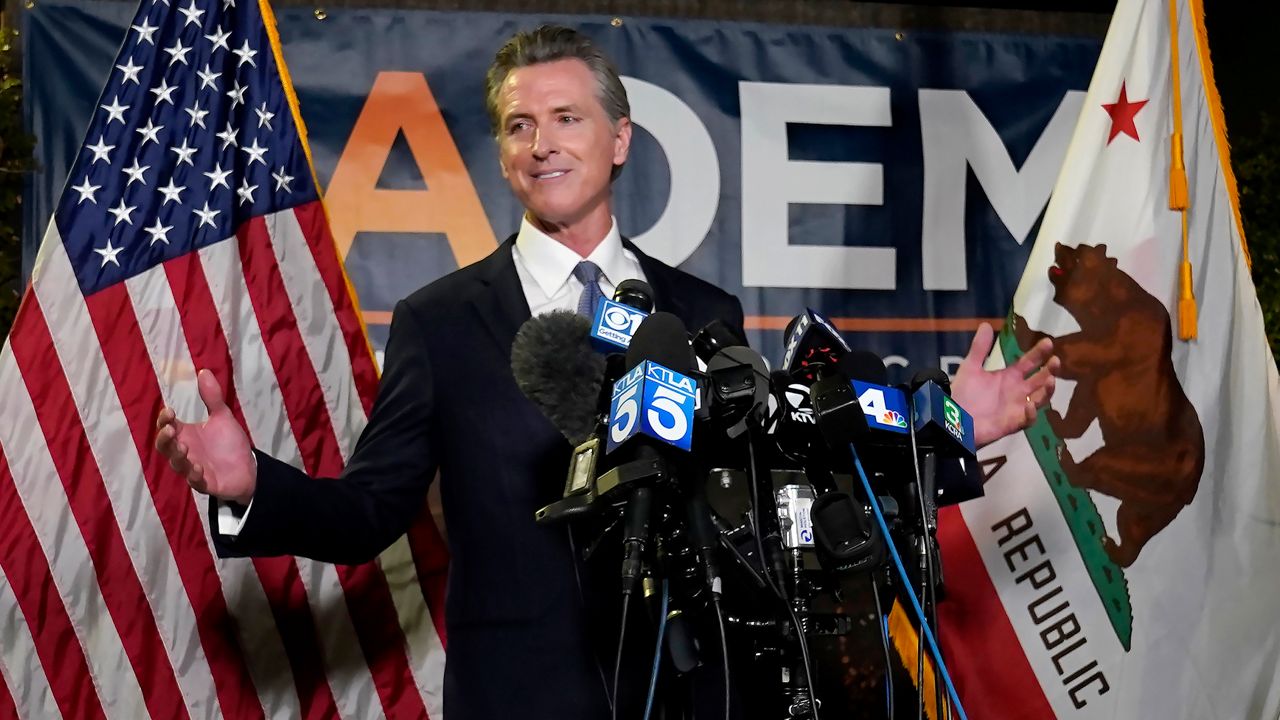ORANGE COUNTY, Calif. — As redistricting takes shape, Orange County remains a key battleground for the 2022 midterm elections and beyond. It has seen changes in recent years. The county has become younger, more diverse and much friendlier for Democrats.
The Democratic Party of Orange County has begun programs to increase candidate numbers and, for the first time, took all seven congressional seats that touch the county in 2018. That lead was lost in 2020, and while the Republican machine that once existed has evolved, registration among Republicans remains high.
While the year in politics saw no general elections, big changes have created significant questions for 2022.
Here are some major events in county politics from 2021.
Republicans had just gained ground in the county during the 2020 November elections, vacating the second supervisor’s seat with Republican Michelle Steel’s victory in California’s 48th Congressional District. Her victory ousted Democrat Harley Rouda and triggered a special election to fill Steel’s seat.
The campaign that followed showed friction in the Orange County Republican Party, as leaders attempted to narrow the field. John Moorlach, who had served eight years as the county supervisor for the 2nd district before serving in the state Senate was the favorite. The party endorsed him, pointing to unpublished polling data commissioned at the party’s expense.
Other candidates bristled at the quick selection of a candidate whom they felt was unelectable. Kevin Muldoon, a Newport Beach city council member and then Fountain Valley Mayor Michael Vo ignored requests to exit the race. Muldoon rebuffed Party Chairman Fred Whitaker in a meeting at his office, and Vo ignored overtures by phone.
What had been expected to be an easy victory in a district held by a clear lead in registered Republican voters turned into a decisive rebuke. Katrina Foley, the mayor of Costa Mesa serving a final term, took the seat, adding a second Democrat to the county board of supervisors.
As COVID-19 kept people at home, bars closed, restaurants tried to retool for a primarily delivery business, and Gov. Gavin Newsom was said to be dining out. Not outside a fast-food restaurant, but inside a much fancier eatery known as the French Laundry. That night became the subject of the Republican clarion call to recall the sitting governor.
While recall efforts are attempted against virtually every governor in office, they rarely succeed in forcing a special election. Organizers successfully appealed to the legal system gaining roughly two additional months — enough time to gather enough valid signatures to trigger the recall.
Along the way, pundits and political scientists were reluctant to categorically say the recall, once triggered, had any chance of success. No candidates with broad name recognition existed, and likely voters, per statewide polls, indicated they would turn out to protect Newsom.
The recall also reignited efforts to make a future recall more difficult. Some lawmakers believed more signatures should be required for a recall, and if the governor were successfully voted out, then the lieutenant governor should take the position. That change, proponents say, would dramatically reduce the political value of a recall.
While Republicans didn’t get the win, a new face of the state party emerged.
When Larry Elder went to speak in front of the Republican Party of Orange County, hundreds of voters came to watch, some brandishing cardboard cutouts of his head. He had eschewed the debates featuring other top Republicans, choosing instead to run his own events in the interest of protecting his lead.
While the state and local parties chose not to endorse a candidate, Whitaker gave Elder his endorsement. That led to even more fundraising for the conservative radio host.
Democrats sought to make Elder the face of the Republican response to the recall, focusing on some of his stronger conservative ideas. And at every opportunity, Democrats equated his vision for the state with the political ideas of Donald Trump.
While Elder lost handily, he implied in his concession speech that he would not be going away.
Republicans may not have achieved victory, but Elder achieved name recognition that few other Republicans in the state can rival.
Once the census data was in, it was clear: California would be losing a congressional district for the first time in state history. Where that district would be lost was not immediately clear. But once the demographics analysis was in, it became clear that the number of congressional districts touching Orange County would drop from seven to six.
Orange County remains one of the most important voting counties in the nation as at least two districts remain deeply competitive. Republicans Young Kim and Michelle Steel narrowly won their districts, CA 39 and CA 48 respectively.
Now, Katie Porter’s, D-Calif., 45th Congressional District seat has been reorganized, shifting the demographics of her territory but maintaining her home city of Irvine.
Defeating Porter would be a major victory for Republicans who are sure to sink deep resources from the national party in an effort to extricate one of the Democrat’s most formidable fundraisers.
With the primaries for the 2022 midterms just around the corner, the congressional field remains in flux. Rouda has announced he has suspended his efforts to retake his old seat, and Alan Lowenthal, D-Calif., will not seek reelection for his seat covering Long Beach.
Whatever the field may be for these races, big dollars are bound to flow.



